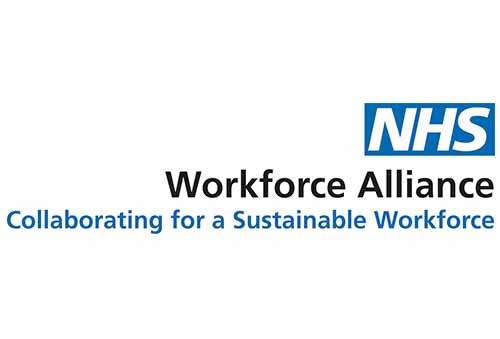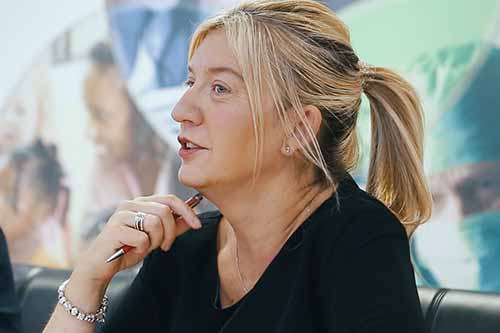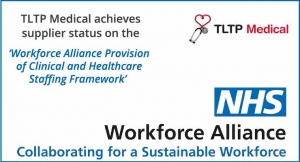The mental health of NHS workers is on the brink
NHS healthcare workers are being pushed above and beyond their limits as a result of the rising no. of COVID-19 cases, limited resources and staff shortages.
Staff are both emotionally and physically exhausted and the psychological effects of the pandemic will have a lasting impact on their mental health. The impact of other pandemics such as the SARS is well noted, with increased rates of depression, burnout, post-traumatic stress disorder (PTSD) and anxiety.
Early warning walls were available on the impact of COVID-19 from China and Singapore. Data published from these countries detailed the mental effects the pandemic was having on healthcare workers. Mix this with pre-existing rates of stress-related illness, high suicide rates compared to other occupations and we have a perfect storm. With all this data available the UK was still unprepared.
To assess the factors associated with staff burnout during the COVID-19 pandemic a study of 2,707 healthcare workers identified these to be:
1. Feeling pushed beyond training
2. Exposure to Covid-19 patients
3. Making life-prioritising decisions
To deal with the intensity of the current wave, many staff have been redeployed again to areas such as ICU, with limited experience and training, with increased exposure to Covid-19 patients, and senior staff increasingly having to make life-prioritising decisions, such as whether someone is suitable to be admitted to ICU and go on a ventilator. Staff are doing this day-in and day-out, for months. It is not difficult to understand why our workforce is burning out.
A senior nurse based in a London emergency department reported to the Independent “We were seven short this morning. Some are sick with Covid, some are isolating and some have been off for weeks for mental health reasons. Every day we are relying on the goodwill of colleagues to come in to do extra shifts.”
“The extra support we had in the first wave, with free food, transport, and extra pay for additional shifts has been scrapped. Many of us are not from the UK, feel isolated and drained, and haven’t seen our families for eight or nine months. I have never seen so many nurses cry during shifts. Every shift is a struggle.”
Some healthcare workers have been forced to take prolonged sick leave for mental health reasons or have even resigned. “I have already been off long term for mental health reasons and I became so unwell, I attempted to take my own life,” another nurse said. “On my return, I’m being pushed to be redeployed. I was told I had a job to do and to get on with it. Many of us felt like lambs to the slaughter.”
The support provided to staff during the first wave, such as free parking, food, accommodation, access to psychologists and wellbeing hubs, is no longer in place at most trusts, at a time when the staff need it the most.
A report from the Royal College of Nursing Research Society in May 2020 showed 24% of 4,063 nurses and midwives across the UK, surveyed between 28 April and 12 May, said they were suffering severe or extremely severe depression. This is a dangerous situation for a profession that already had a high suicide rate before Covid-19 struck.
One senior nurse said: “I feel sorry for some of the junior staff. I remember I had to teach someone over the phone how to do non-invasive ventilation, as we didn’t have enough staff and I just couldn’t leave.”
“When junior nurses ask for help and feel overwhelmed, sometimes they are left by themselves to get on with it, as there just isn’t enough support. After months of this, I was forced to take a period of sick leave as I couldn’t cope anymore and felt so guilty.”
The pandemic has also had an impact on the next generation of doctors and healthcare workers. Many postgraduate exams are being cancelled or postponed as have some speciality recruitment interviews, which trainees have dedicated months preparing for. The uncertainty, unpredictability and the detriment to their career pathway has also contributed to psychological distress and burnout.
The goodwill of staff, on which the NHS has run on for many years, is running out. Over the coming weeks and months, the Covid surge is likely to continue. The government, key policy makers and local/national stakeholders must ensure that the mental health of staff is not neglected in the face of the rising Covid admissions and deaths, and that adequate support is in place to curb an impending mental health epidemic in the UK – the aftermath of which may see many staff members off on long-term sick leave or resigning completely.
If you’re concerned about yourself, a loved one or a colleague the NHS offers an urgent mental health helpline. To find your local helpline please visit https://www.nhs.uk/service-search/mental-health/find-an-urgent-mental-health-helpline.
For a full list of mental health services available from charities, organisations and support groups please visit https://www.nhs.uk/conditions/stress-anxiety-depression/mental-health-helplines/.
The coronavirus pandemic has changed the way we work, live, socialise, shop and travel on a scale we would never have thought.
Working in healthcare is demanding on any day, but with the pressure COVID-19 brings, it is more important now than ever to look after our mental health and well-being. Many healthcare workers have worked extremely long hours and under extreme high pressure. Many would have also been exposed to traumatic situations or faced with moral dilemmas as result of poor staffing levels, lack of proper equipment or confusion with new guidelines. The risk of long-term psychological issues arising from such situations is worrying for healthcare workers.
It’s natural for anyone working in the healthcare industry today to feel anxious and stressed, it is one of the most challenging industries and one that is faced with constant change and uncertainty.
Follow our five steps to help healthily cope with stress.
1. Talk
Never has talking been more important. Everyone is going through change as a result of COVID-19. Talking helps to ease your worries and help you see things from a different point of view.
If you are feeling worried, scared or helpless at work, have a chat with your manager or a member of the senior team, it will help them see things from view and provide the support you require. If you don’t feel confident to be able to do that, there are people you can speak to via NHS recommended helplines.
Talking to close friends and family is also good as they can help to give you advice and sometimes it’s nice to talk to people outside of your work without the fear of being judged or worry about any implications your concerns may have.
It’s equally important to keep talking to your students and check-in with them of how they are feeling. Young minds are constantly developing and taking in new information, however many of them won’t have the emotional capacity to handle or healthily process this.
If you can encourage all the staff to adopt the same practices, it can help the well-being of the whole workplace.
2. Stay connected
You may find yourself locked away due to the ever-increasing number of restrictions and overtime find that you are out of touch with friends and family. Technology surrounds us, so there are lots of ways you can remain connected. WhatsApp, video calls via Zoom, Skype, Google Duo and Facetime to name just a few and various social media platforms can all help you from feeling isolated. And, if social media becomes too overwhelming then it’s okay to disconnect for a while.
3. Stick to a routine
Whilst there is disruption around us, you must stick to a normal routine. Do the things you would usually do (as much as the restrictions allow). This includes keeping on top of basic things like shopping, cleaning, laundry, eating, sleeping and exercising. If you keep up with the little things, you’ll be able to handle new changes and extra tasks that come your way.
4. Don’t be hard on yourself
Each day we are all facing new situations, no-one knows what the future holds, all we can do is our best. As a healthcare professional you are fully trained, qualified and experienced so never doubt yourself. You wouldn’t be hard on your patients when you are treating and supporting them, so why be hard on yourself?
If you find yourself having to take on more responsibilities, or work a different way. i.e. treating patients via online videos, try to keep what you are doing simple. Don’t over complicate your work or do things that are not necessary, keeping to the basics will help keep the pressure off yourself.
5. Take time out for yourself
Regularly taking some time out for your physical well-being is vital.
Find a few minutes in the day for a bit of peace or get some fresh air. Even if it means taking 10 minutes out to eat lunch without having any distractions around you. this will do wonders in easing your mind, refocus and help to keep you calm and in control.
When you’re not at work, it’s important to take your mind of ‘work’ by finding something to distract yourself with. There are lots of things you can do which don’t require a lot of investment, such as:
- Going for walks, bicycle rides or even a class at the gym. If going out is not an option; join a fitness class online
- Jigsaw puzzles – doing a bit at a time will give you the motivation to complete it
- Painting, making a collage, embroidery, pottery
- Playing an instrument – there are lots of tutorials on YouTube
- Cooking, learning a new dish or just experimenting with different foods. There are tonnes of social media groups, recipes and videos online showing you step by step guides
Whatever you do, remember the time is for you, no one else. It’s tempting to keeping looking at our phones, to stop temptation, switch off your phone and leave it another room.
We all need time to reflect, relax and recharge; after all, we’re only human.
Further guidance and support can be found by visiting the following websites.
The government’s guidance on mental health and well-being - https://www.gov.uk/government/publications/covid-19-guidance-for-the-public-on-mental-health-and-wellbeing?priority-taxon=774cee22-d896-44c1-a611-e3109cce8eae
Macmillan Cancer Support - Emotional Health and Well-Being for Health and Social Care Professionals - https://www.macmillan.org.uk/coronavirus/healthcare-professionals/mental-health-and-wellbeing-support
MIND is a leading mental health charity that provides support to anyone experiencing mental health problems - https://www.mind.org.uk/information-support/coronavirus/coping-as-a-key-worker/
NHS practitioner help supports the well-being of all NHS staff - https://www.practitionerhealth.nhs.uk/covid-19-workforce-wellbeing
Royal College of Nursing has published COVID-19 guidance on mental health care delivery - https://www.rcn.org.uk/clinical-topics/mental-health/covid-19-guidance-on-mental-healthcare-delivery
Related Articles
£870 raised for the mental health charity MIND
TLTP Medical frontline carers go above and beyond the call of duty
London Teaching Pool Ltd. (TLTP Medical) has successfully been awarded accredited supplier status on the Workforce Alliance Provision of Clinical and Healthcare Staffing Framework.
The provisions awarded are:
- Lot 1 Nursing and Midwifery Staffing
- Lot 3 Allied Health Professionals and Health Science Services Staffing
- Lot 5 Social Care Staffing

This is a new National Clinical and Healthcare Staffing framework that has been published under the newly formed Workforce Alliance. The framework will be lead and managed by the NHS London Procurement Partnership (NHS LPP). It will be exercised on behalf of the Workforce Alliance, with the Awarding Authority being NHS LPP's Host Trust; Guy’s & St. Thomas’ Hospital NHS Foundation Trust.

The collaboration is a long-term plan to deliver a whole portfolio of health workforce services which helps to ensure there is an easy and quick access to a sustainable workforce.

Lisa Camp, Managing Director of TLTP Medical said “We are delighted to be part of a respectable framework that values our commitment to helping hospitals and medical practices deliver the best patient care and a high level of service. We are proud that our robust compliance and vetting procedures have been recognised, as this is an area, we continue to invest in.”
“The framework will allow us to continue to provide high quality, temporary, permanent and fixed term clinical and healthcare staffing services across the UK.”
"With over 14 years’ experience working closely with the NHS, and as a proud member of the REC; this recognition further reinforces our dedication to providing a recruitment solution that adds value. We look forward to meeting and exceeding the high-standards expected from this framework, in order to cater to the challenging recruitment needs and ensure the satisfaction of our clients.”
For more information, please visit National Clinical and Healthcare Framework.
To find out more about our recruitment services and how we can support you with your staffing needs, please get in touch with us on 020 8709 6553 or complete a call back request form and we will give you call.
Thank our NHS heroes with huge national clap
This evening the UK will come together for a national salute to honour the hardworking NHS staff and all carers working hard through the coronavirus outbreak.
In a gesture of thanks to the frontline healthcare heroes, everyone across the nation has been invited to join a mass round of applause from their doorsteps, gardens, windows and balconies on Thursday 26th March at 8pm.
Organisers of the "Clap For Carers" campaign - which started online - say it is being staged because "during these unprecedented times they [NHS staff] need to know we are grateful".
The person behind the campaign wrote on its website: "In Spain, France and the Netherlands they already did this. And being a Dutch Londoner, I want to pass this on in the country I feel so at home, and the NHS had been nothing but amazing to my family and myself!"
Landmarks such the Wembley Arch, the Principality Stadium, the Royal Albert Hall and Lincoln Cathedral are set to be lit up in blue during the salute. It is part of the #lightitblue campaign which has been organised by members of the events and entertainment industry as a way to say thank you.
In a statement, organisers said: "The events and entertainment industry finds itself in an unprecedented state of enforced inaction.”
"The best thing we can do - apart from staying at home - is to use our skills and networks to say thank you to everyone who is supporting the NHS and risking their own health to help others during this pandemic."
Shadow Health Secretary Jonathan Ashworth said: "Never have we owed so much to our brilliant and hardworking NHS staff. Just as they are caring for us, we need to care for them and give them every ounce of support they need. I welcome this fantastic initiative to encourage the public to show their appreciation to all our NHS workers."
It comes as the total of confirmed cases of coronavirus in the UK since the start of the outbreak neared 10,000.
As health professionals battle the spread and tend to the patients, more than half a million people have also signed up to be NHS volunteers to support in the crisis.
Staying up to date
The government is continually providing updates. For the latest information and advice please visit Public Health England.
There is also guidance for health professionals on the NHS website www.england.nhs.uk/coronavirus.
Track confirmed coronavirus cases in the UK
The coronavirus dashboard is now available to find out and track confirmed cases in the UK.
Coronavirus Tracker - Mobile friendly guide
Coronavirus Tracker - Desktop guide
Symptoms of coronavirus & what to do
Coronavirus: Guidance for Health Professionals
Coronavirus: guidance for health professionals
Find guidance about coronavirus (COVID-19) for health professionals, businesses, schools and other organisations.
This guidance was last updated on 12th March 2020, for the latest information please visit https://www.gov.uk/government/collections/coronavirus-covid-19-list-of-guidance
The advice for anyone in any setting is to follow these main guidelines.
- If you have been in contact with someone with coronavirus or have returned from an affected area identified by the Chief Medical Officer as high risk and you are feeling unwell with a cough, difficulty breathing or fever, stay at home and use the NHS 111 online coronavirus service or call NHS 111.
- Wash your hands more often than usual, for 20 seconds using soap and hot water, particularly after coughing, sneezing and blowing your nose, or after being in public areas where other people are doing so. Use hand sanitiser if that’s all you have access to.
- To reduce the spread of germs when you cough or sneeze, cover your mouth and nose with a tissue, or your sleeve (not your hands) if you don’t have a tissue, and throw the tissue away immediately. Then wash your hands or use a hand sanitising gel.
- Clean and disinfect regularly touched objects and surfaces using your regular cleaning products to reduce the risk of passing the infection on to other people.
At the current time and based on our understanding of what is known of COVID-19 and other similar respiratory viruses, it is likely that older people and those with chronic medical conditions may be vulnerable to severe disease. As more information emerges, recommendations may change.
Guidance for health professionals
- COVID-19: background information
- COVID-19: investigation and initial clinical management of possible cases
- COVID-19: infection prevention and control
- COVID-19: guidance for primary care
- COVID-19: guidance for first responders
- COVID-19: guidance for Ambulance Trusts
- COVID-19: guidance for sampling and for diagnostic laboratories
Track confirmed coronavirus cases in the UK
The coronavirus dashboard is now available to find out and track confirmed cases in the UK.
The government is continually providing updates. For the latest information and advice please visit Public Health England.
Ther is also guidance for health professionals on the NHS website www.england.nhs.uk/coronavirus.




